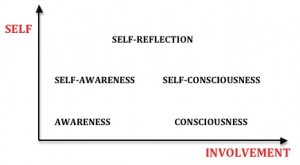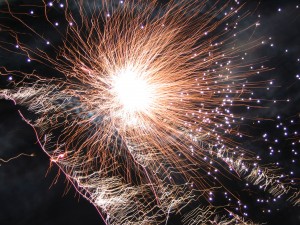If you want to understand complex phenomena you can follow dedicated courses, study professional books or read scientific texts.
There is, however, a more exciting path to understanding which relies on self-learning and self-discovery.
While such a path may be guided by the same books or follow the same courses as mentioned above, a key ingredient is to study own observations and personal experiences. There is no substitution for knowing oneself.
When the observations are shared between people in an atmosphere of curiosity and acceptance, a new understanding often arises. It often comes as if magically created before one’s eyes. Although such an understanding may be built slowly, it is profound. There is usually a moment of deep understanding, where all the loose and seemingly unrelated pieces come together and fit into a beautiful puzzle.
I encourage you to follow this path for yourself.
Simply be curious and experiment.
What is consciousness for you?
How do you experience it daily?
Consciousness has been a hot subject of endless discussions and arguments in philosophy, physics, metaphysics, biology, computer science, and so on. In our Consciousness Group we approached it through the subjective lens of our personal observations and life experiences. This is what I will share below.
In one of our first meeting we discussed how fish becomes conscious of water only if it jumps out of the water. As long as it swims in the water, fish is unaware of it. She becomes conscious of the water-world, when she experiences the air-world.
As a result, consciousness can be seen as a threshold experience when moving from one world into another. Such a movement may be slow, and it may also be very fast, in a split of a second. A moment is enough to become conscious. What we distinguish here is not the overall consciousness mind (including subconsciousness) but the sharp point-like experience of your own consciousness.
In analogy, there are at least two worlds for us, a very Private, inner world and the Common world we share with others.
The Private world is a land of personal feelings, impressions, insights or actions. By actions here we understand mental actions such as decisions, for instance.
The Common world consists of two worlds: the physical world outside us (at least, as we perceive it) and the world of thoughts, ideas and concepts. Although thoughts seem private, we can share them, discuss them and achieve some agreements or conclusions. For this reason they are considered as the residents of the Common world.
 So, the experience of consciousness happens when we move from our inner world of feelings and morals to the world of external observations, thoughts or actions. If you think about such a threshold experience there are two key ingredients of consciousness that are necessary for that: Involvement and Self.
So, the experience of consciousness happens when we move from our inner world of feelings and morals to the world of external observations, thoughts or actions. If you think about such a threshold experience there are two key ingredients of consciousness that are necessary for that: Involvement and Self.
You need Self, a reference to yourself (whether it is a separate entity, you or perhaps an illusion) in order to have a reference point of who is experiencing what is happening. Moreover, you need Involvement, an active participation from Self, as consciousness is alive. See also the diagram to the right.
We also need to conclude here that we are not fully conscious when we stay in one world only. For instance, you can perfectly arrive at a destination by a car without consciously realizing your driving, the journey, the turns and the steps. Your overall mind obviously works well as you completed the task but your sharp pointy-like consciousness experience was not present there. Some people call this “unconscious competence”.
Such an experience is more common than you may think, and includes tasks to which you dedicate your full attention for some period of time. Examples include cooking, programming, reading, writing, cleaning, designing, etc.
Have you ever focused on writing such that you lost yourself into the words?
Have you ever focused on cooking so much that you only experience the dance of ingredients and your creative act?
Have you ever focused on programming or designing so much that you were simply taken with it for multiple hours without a break?
It is quite common, isn’t it? And yes, your pointy experience of consciousness, the director of your consciousness is not acting then.
Perhaps he/she directs the tasks and stays behind the scene as an observer, and only sometimes as an actor…
What do you think?
***
Other posts on consciousness:
- Elements of human consciousness
- When are decisions consciously made?
- Consciousness by numbers in space and time
- Consciousness at the Door
- Three is the experience of Consciousness
- How Three creates Seven
- Consciousness meetings – how I experienced synergy in a group
***

